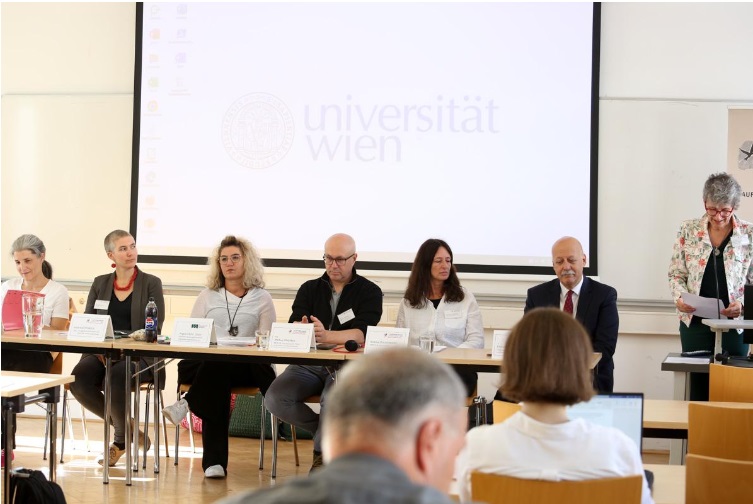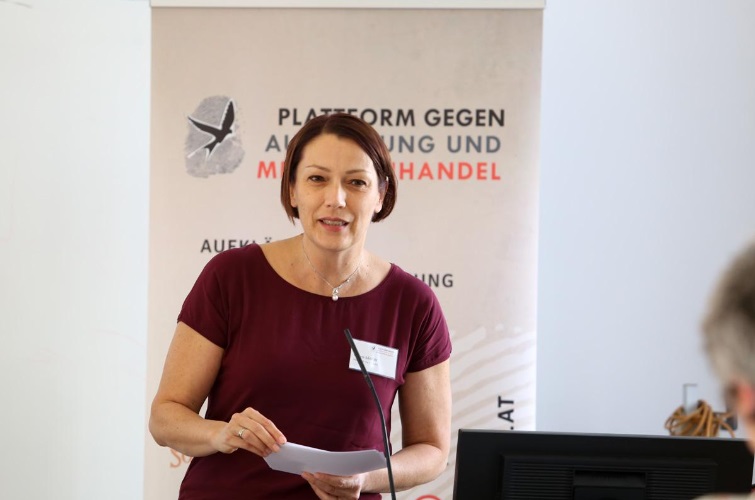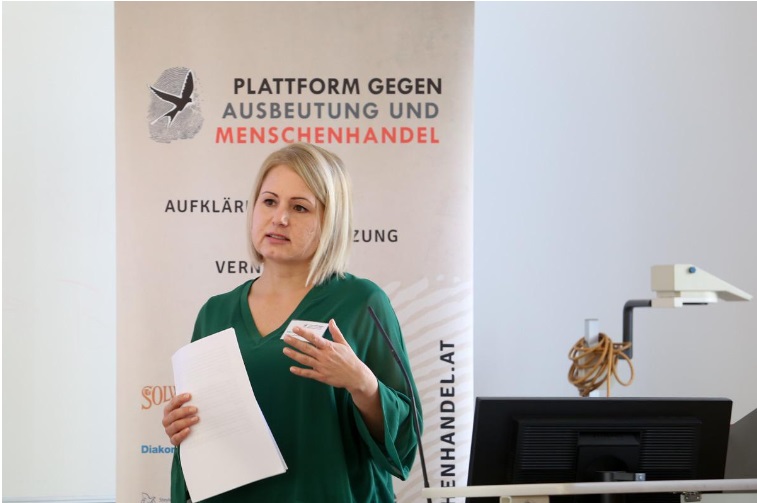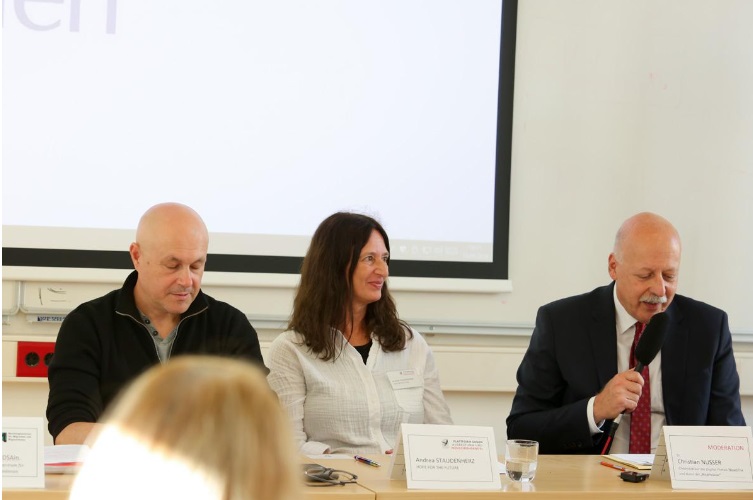It’s Impossible Without Easing the Process!
For years, our chairwoman Andrea Staudenherz has been advocating for easier access to the labor market for people with migration backgrounds. Many of our clients have experienced traumatic violence and often fall through the cracks of the system.
During the panel discussion on September 19, 2024—organised by the platform “AGAINST EXPLOITATION AND HUMAN TRAFFICKING”—it became apparent, how hight the bureaucratic barriers to accessing legal and secure jobs are.

All panelists agreed: if the labor market is not opened up and access is not made easier, the situation will not improve.
The panel discussion titled “Structural Barriers to Labor Market Access—A Breeding Ground for Exploitation and Human Trafficking?” took place in Vienna. The event began with case studies, followed by an academic analysis of the topic from a cultural and social anthropological perspective by Marta L. Dubel. The event concluded with a panel of five experts discussing the current conditions and challenges regarding labor market access.
The Case Studies

Renate Bárány, a founding member of Hope for the Future, shared the story of ‘Rosa,’ a single mother from Nigeria with two children who suffer from ADHD and autism and require special support.
Rosa lost her job after her children’s kindergarten spots were canceled, and since then, she has been trapped in a vicious cycle of bureaucratic dependencies, which she has been unable to break for years.
Ms. Bárány highlighted through this individual case how uncooperative many authorities act. Affected individuals must adhere to deadlines, but the authorities do not. Applications are submitted, but processing often takes months—meanwhile, deadlines pass, and the rights of the individuals lapse.
The various authorities do not communicate with each other, have little to no insight into the records of other agencies, and responsibilities are often unclear, leading to long processing times. Even people who are native German speakers often struggle with these obstacles—making it nearly impossible for those whose native language is not German to navigate the bureaucratic maze.
An Attempt at an Academic Analysis…
In her lecture, researcher Marta L. Dubel highlighted the various ways in which dependency relationships are intricately woven. People are lured to Austria under false promises, have their documents taken away, and are “held captive.” They are continuously pressured, being told that their services will no longer be needed or that they will not be paid unless they comply with demands. Men and women are exploited in different sectors, but the approach is often very similar.
The COVID crisis highlighted that people with migration backgrounds are needed in Austria, yet the government is unwilling to discuss easing access to the labor market. Quite the opposite: the need for labor and skilled workers is treated separately from so-called “immigration policy.” Current EU laws often lead to people with migration backgrounds ending up in precarious and hopeless employment situations—conditions designed to exploit people.

On the Panel
Mag.a Katharina Luger, MBA, Deputy Regional Director, AMS Vienna; DSA Angela Ivezic, Head of the Women’s Counseling Center for Migrants (MIGRANT); Andrea Staudenherz from Hope for the Future (work training as a way out of human trafficking and forced prostitution); Katie Klaffenböck from the Working Group against Human Trafficking for Labor Exploitation within the Task Force against Human Trafficking; and Markus Zingerle from MEN VIA discussed the impact of current restrictions on labor market access for those affected. All shared a common element: the incomprehensibility of Austria’s bureaucratic hurdles. In various accounts from the field, it became clear that voluntary assistance is urgently needed; otherwise, people with migration backgrounds would simply be abandoned.

For example, our chairwoman Andrea Staudenherz emphasised the significant differences between men and women when it comes to employment. While men are often used to immediately taking up work, women often suffer from severe sexual trauma that needs to be addressed first. Additionally, people with migration backgrounds have often experienced so many different traumatic events that they lack the cognitive capacity to learn German in just a few weeks. Markus Zingerle from MEN VIA also pointed out that men are often not believed to have “victim status.” Instead, they are frequently viewed as “accomplices” or fraudsters.
What is it really like to be trapped in the dependency cycle? What does daily life look like? Can any kind of self-determination truly be spoken of? Do affected individuals have any way to escape?
The panelists agreed: it is difficult—very difficult. Even for people who have worked in this field—voluntarily or professionally—for years, it is often challenging to understand the bureaucratic hurdles and to determine why one application is approved and another is denied. Loopholes are sought and, with much experience and good networks, they are found… But without help, those affected are often at the mercy of the system.
The event also made it clear that these problems are not only administrative but deeply affect the daily lives of those impacted. The lack of coordination between authorities, as well as the complexity of the rules, leads to a vicious cycle of uncertainty and dependency. This is particularly evident in areas like residency permits and work authorisations, highlighting the urgent need to simplify bureaucratic processes and strengthen the rights of people with migration backgrounds. Instead, much remains vague and opaque, making it significantly harder for dedicated organisations and volunteers to do their work.
Individual stories show how difficult the situation is, even in a small country like Austria. Fortunately, there are still some businesses that help people find suitable employment, offering them a way out of the dependency trap…
Translated by Anna Smith
#StrukturelleHürden #Arbeitsmarktzugang #Ausbeutung #AgainstHumanTrafficking #GegenMenschenhandel #EndExploitation #EndTrafficking #HopeForTheFuture #Österreich
